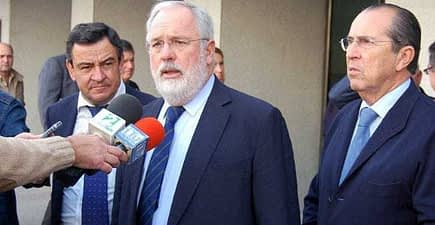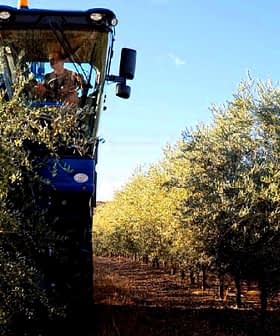A new olive oil lobby group is urgently preparing a position paper to protect its members from threatended subsidy cuts by the European Commission.
At its meeting in Barcelona on last Tuesday, the Forum of European Olive Regions agreed to complete the so-called white paper before the end of June in order to “defend itself in Brussels” as negotiations heat up over the Common Agricultural Policy (CAP) structure and budget for 2014 – 2020.
Among changes proposed by the EC is paying all olive farmers a flat rate per hectare rather than paying some according to production history – a change which would see France and Spain lose the most.
Spain’s olive oil sector alone is currently subsidised to the tune of 40 percent of the value of the olive oil market, according to Spain’s new Minister for Agriculture, Food and Environmental Affairs, Miguel Arias Cañete. “We’re talking about…aid that represents 1 billion euros ($1.3b) and that amounts to in the order of €468 per hectare (per year),” he told Spain’s Parliament last month.
Forum represents regions in Spain, Italy, France, Greece, and Croatia
Speaking after attending the meeting of the new forum, Director General of Industry and Agri-Food Quality for the Andalusian regional government , Ana Romero, told Olive Oil Times the group had to move quickly.
Asked why a new forum was necessary when organizations such as the International Olive Council (IOC), and national and regional governments, already represented the sector, she said while the IOC, for instance, did magnificent work, there was much at stake for the member regions and they were better positioned to lobby directly themselves.
In response to criticism that the CAP payments prop up olive farms otherwise not financially viable, Romero said that there were many reasons to justify subsidies. Among these were the importance of the olive oil sector in maintaining rural communities and preventing land abandonment, particularly in areas of Spain where the land was sloped and very difficult to farm profitably yet the olive oil produced was exceptional.
She said the position paper, which would be released for dicussion in the sector, would set out necessary changes under five main headings: quality, promotion and information, trade and agreements with non-EU countries, research, and the CAP reform.
The development of these sections would be split between the forum’s members, which are Dubrovnik-Neretva and Istria (Croatia), Andalusia and Catalonia (Spain), Corsica, Langedoc-Roussillon, Provence-Cote d’Azur-Alpes and Rhone-Alpes (France), Crete and Sterea Ellada (Greece), and Emilia Romagna, Puglia and Tuscany (Italy).
Representatives of the Assembly of the European Regions producing Fruit, Vegetables and Plants (AREFLH) and the European Association of Geographical Indications (AREPO) are lending their support to the new forum and also attended the meeting.









